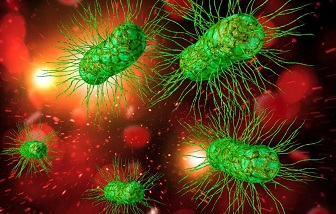BREAKING NEWS! UKHSA Reports Rare E. Coli Type Outbreak In United Kingdom!
Thailand Medical: In a concerning development, the United Kingdom is grappling with an outbreak of a rare strain of Escherichia coli (E. coli) bacteria that has already has 6 out of 24 infected individuals hospitalized. There was one case of death with STEC but is was not possible to comment if the E.Coli infections was a contributory factor or not, given the inquest process needs to be completed first.
Health authorities in the UK, including the Food Standards Agency (FSA) and the UK Health Security Agency (UKHSA), are working tirelessly to identify the source of this Shiga toxin-producing E. coli (STEC) O183 outbreak in collaboration with other public health agencies.

The outbreak has emerged in different regions across the UK, with 19 cases in England, two in Northern Ireland, two in Scotland, and one in Wales, beginning in May and continuing until the current date. The patients affected have reported severe symptoms, including bloody diarrhea, leading to eight of them seeking medical attention, with six requiring hospitalization. Tragically, one person has already lost their life possibly due to this outbreak.
Of particular concern is the age group most affected by the rare E. coli strain, which is children nine years old and younger. Among the 24 cases, twelve are male, and twelve are female, with ages ranging from under one to 74 years old.
Health authorities are diligently investigating the source of the outbreak, but as of now, there is no clear indication of a specific food vehicle responsible for the infections. However, from patient interviews, it has been noted that several sick individuals reported consuming hard cheese in a grated format, as well as strawberries, cucumbers, peppers, and watermelon. This information could prove vital in tracing the origin of the outbreak and preventing further cases.
Experts told
Thailand Medical News, “This is a rare E. coli strain, with only 15 previous cases reported in the UK since 2016. The lack of previous experience with this serotype makes it all the more challenging to tackle and understand. Alarmingly we are getting more reports of E.Coli infectiosn across the country and we are running extensive testing to see which are the ones that are belong to this rare strain that is known for causing increased risk of disease severity and increased risk of mortality.”
Authorities have issued precautionary advice to the public in an effort to control the spread of the bacteria. Thorough handwashing with soap and water is being strongly encouraged, especially for young children. Parents have been advised to assist young children with handwashing to ensure effectiveness. Additionally, children under five who display symptoms of sickness or diarrhea should avoid attending school, nursery, or group childcare until they have been free of symptoms for at least two days. Similarly, individuals feeling unwell are urged to refrain from visiting hospitals or care home settings.
It is crucial to be aware of the potential complications that may arise from E. coli infections.
In some cases, a person affected by the outbreak develops Hemolytic Uremic Syndrome (HUS), a severe condition linked to E. coli infections that ca
n lead to kidney failure. While the link between HUS and the E. coli outbreak is evident, further investigation is needed to determine the full extent of this association.
In the current outbreak, there has been 1 case of HUS reported amongst 24 cases, meaning this is an atypical presentation at present. HUS is a rare but serious disease
HUS, a potential complication of E. coli infections, is characterized by kidney failure and can be particularly dangerous for children under five, older adults, and individuals with compromised immune systems. The onset of HUS is associated with symptoms such as fever, abdominal pain, fatigue, decreased urination, unexplained bruises or bleeding, and paleness.
Notably, an unrelated E. coli incident has also been reported in the UK. Three children fell ill after visiting an adventure park in Epsom, Surrey, which features a variety of animals. The park, known as Hobbledown, has temporarily closed as authorities investigate the source of the infections. The owner, Nick de Candole, has assured the public of their cooperation with health agencies and the implementation of necessary measures to ensure the safety of visitors.
E. coli infections are caused by the consumption of contaminated food or water or through direct and indirect contact with animals or their environments. Symptoms can vary from person to person but often include severe stomach cramps and bloody diarrhea, sometimes accompanied by a fever. The majority of patients recover within a week, but in some cases, the infection can lead to life-threatening complications.
Anyone experiencing symptoms of E. coli infection or HUS should seek immediate medical attention. Prompt diagnosis and treatment are crucial to prevent further complications and ensure a swift recovery. Hospitalization is often necessary for individuals with HUS to manage its potentially severe and long-lasting effects on the body.
As health authorities continue their investigations, the public is urged to remain vigilant and follow the recommended hygiene practices. By taking these measures seriously and cooperating with health agencies, the UK can better contain the outbreak and prevent further tragic outcomes. The FSA and UKHSA are working diligently to safeguard public health and identify the source of this rare E. coli outbreak, and updates will be provided as soon as more information becomes available.
For the latest on the Rare E.Coli Outbreak in UK, keep on logging to
Thailand Medical News.
